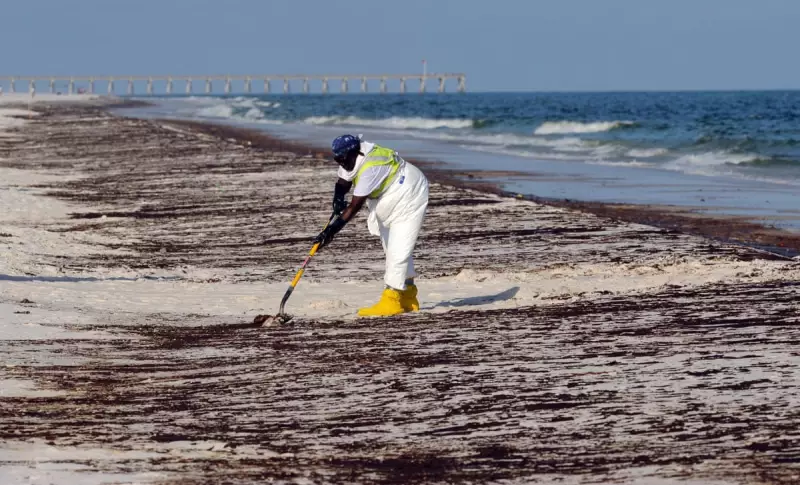
White House Greenlights Controversial Offshore Drilling Expansion
The Trump administration has ignited a political firestorm by announcing new oil and gas drilling operations off the coasts of California and Florida. This controversial move sets the stage for a significant confrontation with Sunshine State Republicans who have historically opposed petroleum development in the Gulf of Mexico.
The announcement came on Thursday as the US petroleum industry, despite grappling with low crude prices, continues pushing for access to additional offshore drilling areas. According to the Associated Press, the industry's drive for expanded access represents an effort to boost employment and enhance American energy independence.
Decades of Protection Under Threat
The federal government has maintained a ban on offshore drilling in the eastern Gulf of Mexico since 1995, covering waters stretching from Florida's shores to parts of Alabama. This long-standing prohibition originated from deep-seated concerns about potential environmental disasters from oil spills.
While California currently hosts some offshore oil development, no new leases have been granted in federal waters for nearly thirty years, highlighting the significance of this policy reversal.
A proposed petroleum leasing schedule for federal waters includes up to 34 auctions scheduled between 2026 and 2031. According to Politico, these auctions would feature up to six sales off California's coastline, twenty-one near Alaska's shores, and two in the eastern portion of the Gulf of Mexico. The Alaskan sales reportedly include regions that have never experienced oil drilling operations.
Political Backlash and Environmental Concerns
This move reflects President Trump's determined efforts to dismantle former President Joe Biden's initiatives against global heating. Trump has famously described climate change as "the greatest con job ever perpetrated on the world" and established a National Energy Dominance Council to boost domestic energy production, with particular emphasis on fossil fuels.
Simultaneously, the Trump administration has actively hindered renewable energy development, including offshore wind farms, and eliminated billions in green energy grants.
California's Democratic Governor Gavin Newsom, a prominent Trump critic considering a presidential run, immediately rejected the offshore drilling expansion, declaring it "dead on arrival."
The proposal has encountered bipartisan resistance in Florida, where pristine beaches and crystal-clear waters support the state's substantial $131 billion tourism industry. Senator Rick Scott, a Florida Republican, previously persuaded Trump to abandon offshore drilling plans in 2018. Both he and fellow Republican Senator Ashley Moody have co-sponsored legislation to maintain the drilling ban.
Senator Scott emphasised, "As Floridians, we know how vital our beautiful beaches and coastal waters are to our state's economy, environment and way of life. I will always work to keep Florida's shores pristine and protect our natural treasures for generations to come."
The announcement evokes memories of environmental catastrophes like the Deepwater Horizon disaster in 2010, which saw workers cleaning oil from Pensacola Beach in Florida, highlighting the persistent risks associated with offshore drilling operations.





